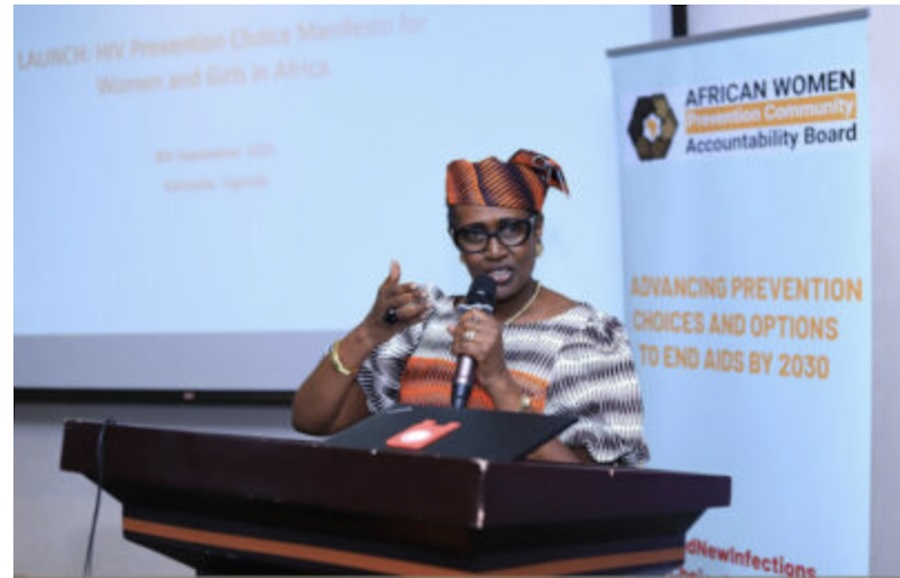. WOMEN’S EQUALITY .
An article from Radarr Africa
Girls’ education as a tool to prevent HIV infection has been centred at the 1st African Union Pan-African Conference on Girls’ and Women’s Education in Africa. This followed African leaders designating education as the 2024 African Union theme of the year.
At a high-level side event hosted by the Education Plus Initiative on the first day of conference held at the African Union Commission in Addis Ababa, Ethiopia, leaders, girls’ and women’s networks and advocates called for greater investments in girls’ education.

“Some people claim that providing girls with secondary education is too expensive. Such claims fail to consider the exponentially higher cost of not educating them,” said UNAIDS Executive Director, Winnie Byanyima. “We can get all our girls and boys to complete secondary education; that should be our legacy.”
UNICEF calculates that 34 million girls in sub-Saharan Africa are out of secondary school. According to the Global Education Monitoring (GEM) Report 2023, in all regions in Africa, there are more girls out of school at the secondary level than boys, with gender disparities worsening as children move up to higher levels of education in favour of boys over girls. In sub-Saharan Africa, less than half of adolescent girls complete secondary education, their percentage standing at 42% and there has been no progress at all in closing this gap in the past 20 years. Sub-Saharan Africa is the region furthest from parity at the expense of girls, with no progress since 2011 at the lower secondary level and since 2014 in upper secondary.
Gender is a key factor linked to disparities in enrolment, retention, completion, and learning outcomes through social conditioning, gender-based differences in parental expectations and education-related investments, child marriages and early childbearing, female genital mutilation, child labour, gender-based violence, period poverty and discrimination.
(Article continued in right column)
(Click here for the original in French.)
Can the women of Africa lead the continent to peace?
(Article continued from left column)
More than forty years into the HIV response, Africa remains an epicenter of the AIDS epidemic with adolescent girls and young women being disproportionately affected. Every week 3100 adolescent girls and young women acquired HIV in sub-Saharan Africa. Every three minutes, an adolescent girl or young woman aged 15-24 years acquired HIV in 2022 in sub-Saharan Africa. Adolescent girls and young women aged 15-24 years in the region were more than three times as likely to acquire HIV than their male peers in 2022.
UN agencies, African Union representatives, government ministers, and young women leaders called for accelerated actions to translate commitments to action through leveraging girls’ education for gender equality and preventing HIV, child marriage, teenage pregnancies, violence, gender-related stigma and discrimination in Africa.
Speakers emphasized the connection between health and education. Ministers spoke about key policy reforms and best practices aimed at promoting girls’ education, including creating safe and inclusive school environments, strategies to get girls into secondary school, and the readmission policy that addresses high dropout rates due to pregnancy. UN co-leads emphasised the need for improved collection of data disaggregated by sex and other relevant population characteristics to better understand educational participation, progression, and learning, and using gender-sensitive data for policymaking and planning.
Other issues highlighted included the integration of digital literacy programs into the secondary education and vocational training curriculum to facilitate smooth transitions from school to employment; integration of gender equality into all aspects of the education system, including curriculum-based comprehensive sexuality education and life skills, address gender-based violence within schools and discriminatory laws and practices, and access to information, non-discriminatory HIV and sexual and reproductive health services access.
Young women leaders spoke on the role of partnerships and young women’s leadership. Participants highlighted the upcoming 30th anniversary of the Beijing Declaration as an opportunity moment to accelerate accountability and commitments, as well as the CSW Resolution 60/2, Women, the Girl Child and HIV and AIDS as significant mechanisms to address political and resource gaps so no woman or girl is behind in the HIV response.
Education Plus is a rights-based, gender-responsive action agenda to ensure adolescent girls and young women have equal access to quality secondary education, alongside key education and health services and support for their economic autonomy and empowerment. Co-led by five UN agencies, the initiative builds on existing frameworks like the Transforming Education Summit, the Continental Education Strategy for Africa (CESA) and the Dakar Education for All (EFA) Declaration to push for access and completion of education for women and girls in Africa.
– – – – – –
If you wish to make a comment on this article, you may write to coordinator@cpnn-world.org with the title “Comment on (name of article)” and we will put your comment on line. Because of the flood of spam, we have discontinued the direct application of comments.